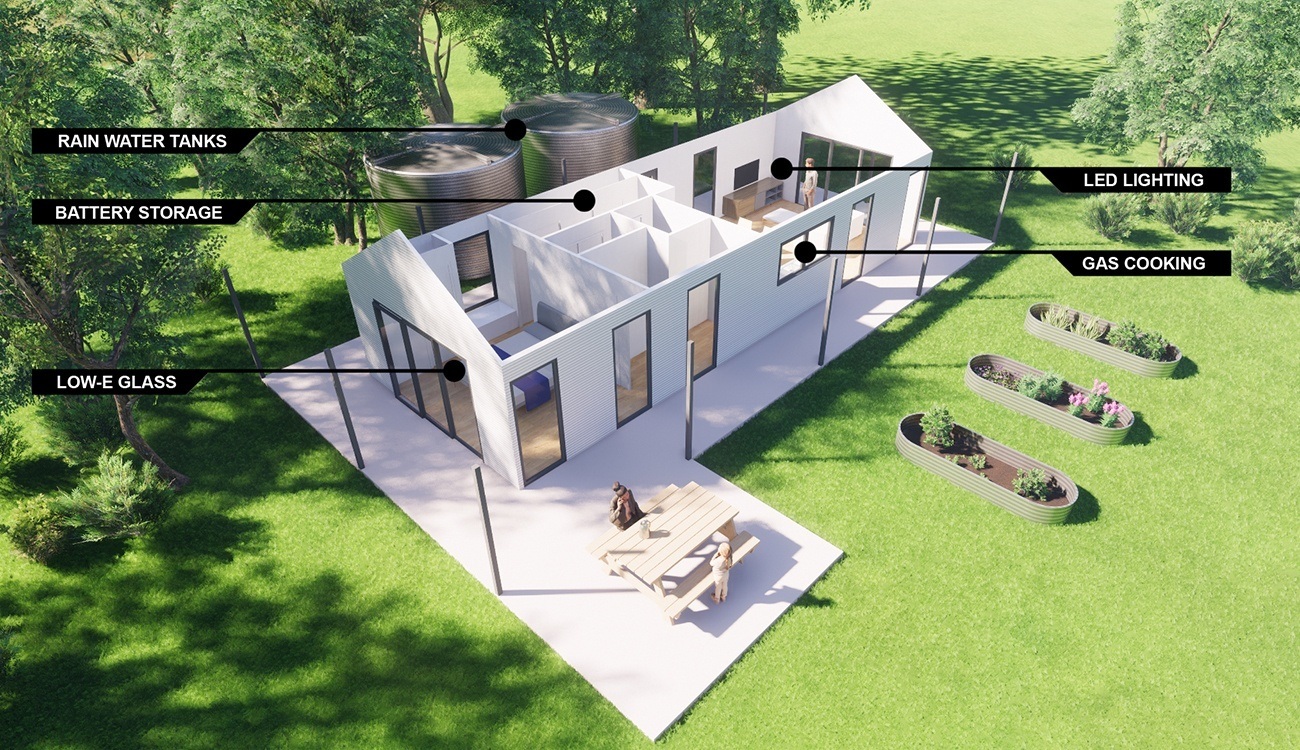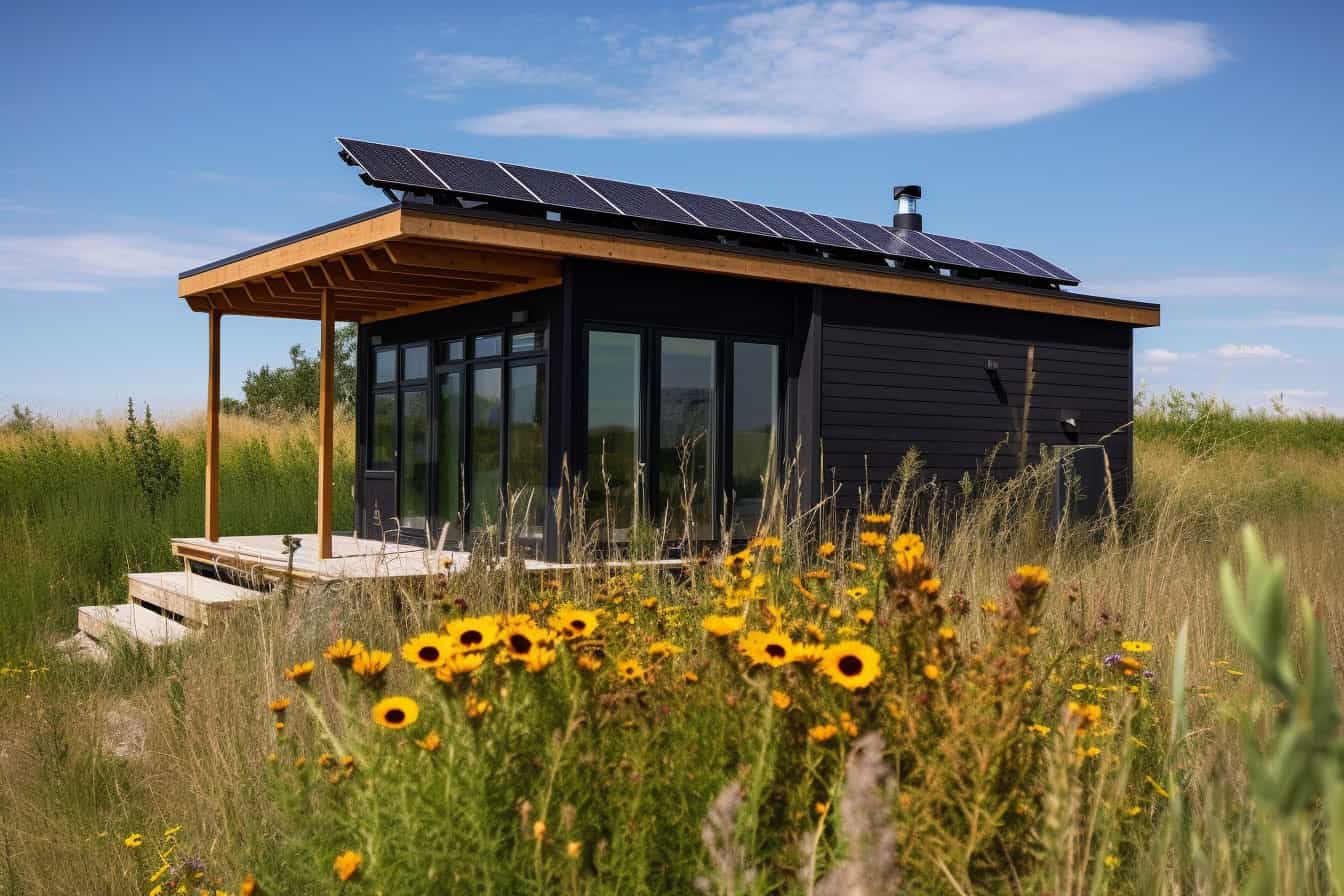Off Grid Living UK Book delves into the burgeoning trend of self-sufficiency in the British Isles. This comprehensive guide explores the various approaches to off-grid living, from repurposed vans to meticulously planned self-built homes, examining the legal, environmental, and financial considerations involved. The book also provides practical advice on essential resources, renewable energy systems, and waste management techniques tailored to the UK climate.
Readers will discover the diverse lifestyles embraced by those choosing off-grid living, uncovering the challenges and rewards inherent in disconnecting from traditional utilities and embracing a more sustainable existence. Detailed case studies illustrate the practical realities of off-grid living in the UK, offering valuable insights for aspiring self-sufficient individuals.
Popularity and Trends of Off-Grid Living in the UK
Interest in off-grid living in the UK is experiencing a significant surge, driven by a confluence of factors including rising energy costs, environmental concerns, and a desire for greater self-sufficiency. While precise statistics on the number of off-grid households remain elusive due to the decentralized nature of this lifestyle, anecdotal evidence and increased searches for related terms online strongly suggest a growing trend.
You also will receive the benefits of visiting off grid living locations today.
This burgeoning interest is not merely a fleeting fad; it represents a fundamental shift in how some Britons view their relationship with the environment and the established infrastructure.
Demographics of Off-Grid Living in the UK
The demographic profile of those embracing off-grid living in the UK is diverse, but certain trends are observable. While there’s no single archetype, a significant portion comprises younger individuals and families seeking a more sustainable and environmentally conscious lifestyle. Many are drawn to the prospect of reduced reliance on utility companies and the potential for greater financial independence.
Older individuals, often retirees, also represent a substantial segment, motivated by a desire for tranquility and self-sufficiency in their later years. This shift away from urban centers towards rural or remote areas is further fueled by a growing awareness of the ecological footprint associated with traditional living. The rise of remote working also plays a significant role, allowing individuals to maintain professional lives while enjoying the benefits of off-grid living.
Comparison of Off-Grid Living Popularity Across Europe
While precise comparative data across European nations is scarce, anecdotal evidence suggests the UK’s off-grid movement, while growing, is perhaps less pronounced than in some Scandinavian countries or parts of mainland Europe where sustainable living and self-sufficiency have longer traditions. Countries like Sweden and Norway, with their strong emphasis on environmental stewardship and robust support for renewable energy, have witnessed a more established and possibly larger off-grid population.
However, the UK’s increasing focus on sustainability and the rising cost of living are expected to accelerate the growth of the off-grid movement domestically, potentially narrowing the gap with its European counterparts in the coming years.
Pros and Cons of Off-Grid Living in the UK
The decision to embrace off-grid living requires careful consideration of both advantages and disadvantages within the specific context of the UK. The following table summarizes key aspects:
| Advantages | Disadvantages | Considerations | Solutions |
|---|---|---|---|
| Reduced energy bills and reliance on utilities | High initial investment costs for equipment and infrastructure | Planning permission and building regulations compliance | Thorough research and planning, seeking professional advice |
| Greater self-sufficiency and independence | Potential for isolation and limited access to services | Suitable land acquisition and access to resources (water, etc.) | Careful site selection, community engagement, and resource management strategies |
| Reduced environmental impact | Technical challenges and maintenance requirements | Weather conditions and their impact on off-grid systems | Robust system design, regular maintenance, and contingency planning |
| Improved mental and physical wellbeing (for some) | Potential for increased workload and responsibilities | Financial implications beyond initial investment (e.g., repairs) | Realistic budgeting, skilled labour or professional help when needed, emergency fund |
Essential Resources and Technologies for Off-Grid Living in the UK

Embracing off-grid living in the UK requires careful consideration of resource management and technological solutions. The unpredictable British weather necessitates robust and adaptable systems for energy, water, and waste management. Successful off-grid living hinges on understanding the limitations and opportunities presented by the UK climate and choosing appropriate technologies.
Renewable Energy Sources in the UK
The UK’s climate, while often overcast, still offers opportunities for harnessing renewable energy. Solar power, while not as consistently strong as in sunnier climates, remains viable with efficient panels and battery storage. Wind power, particularly in exposed locations, provides a reliable supplemental source. Hydropower, dependent on water availability, can be a significant contributor for those with access to streams or rivers.
The optimal approach usually involves a combination of these sources to ensure a resilient energy supply.
Water Harvesting and Storage Techniques
Water conservation is paramount in off-grid living. Rainwater harvesting is crucial in the UK, utilising roof-mounted gutters and collection systems to channel rainwater into storage tanks. The tanks should be constructed from durable, food-grade materials and ideally located to minimise sunlight exposure to prevent algae growth. Filtration systems, including simple sediment filters and UV sterilisation, are essential for ensuring the water’s potability.
Greywater recycling, carefully managed to avoid contamination, can supplement rainwater harvesting for non-potable uses like toilet flushing or garden irrigation. Water butts, positioned strategically around the property, also aid in collecting rainwater.
Waste Management and Composting
Effective waste management is critical for maintaining hygiene and environmental responsibility. A multi-pronged approach is essential. Composting toilets, either of the separating or composting variety, offer a sustainable alternative to traditional sewage systems. Careful separation of organic and non-organic waste is vital for successful composting. The UK’s cooler climate may require the use of enclosed compost bins to accelerate decomposition.
Recycling programs, where feasible, should be utilised for non-compostable materials. Regular emptying and responsible disposal of non-recyclable waste is also a necessity.
Essential Tools and Equipment for Off-Grid Home Building and Maintenance
A comprehensive toolkit is essential for constructing and maintaining an off-grid home in the UK. The specific tools will depend on the building materials and chosen technologies. However, some essentials include:
- Hand tools: Hammers, saws, screwdrivers, pliers, wrenches, levels.
- Power tools: Drill, circular saw, angle grinder, chainsaw (if applicable).
- Measuring and marking tools: Tape measure, spirit level, marking pencils.
- Safety equipment: Safety glasses, gloves, hard hat, ear protection.
- Plumbing tools: Pipe cutters, wrenches, sealant.
- Electrical tools: Wire strippers, crimpers, multimeter.
- Welding equipment (if applicable).
Beyond tools, essential equipment includes water pumps, generators (for backup power), and a comprehensive first-aid kit. The selection of tools and equipment should reflect the specific needs of the off-grid dwelling and the skills of the inhabitants.
Illustrative Examples of Off-Grid Living in the UK: Off Grid Living Uk Book

Off-grid living in the UK presents unique challenges and rewards, shaped by the country’s climate and regulations. Successful off-grid homes require careful planning, robust systems, and a commitment to self-sufficiency. The following examples showcase diverse approaches to achieving this lifestyle.
The Coastal Croft in Cornwall, Off grid living uk book
This family of four lives in a renovated stone croft on the rugged Cornish coast. Their home, nestled amongst rolling hills and overlooking the Atlantic, is powered by a combination of solar photovoltaic (PV) panels and a small wind turbine. The PV array, comprising 20 panels with a total capacity of 5kWp, provides the majority of their electricity, supplemented by the wind turbine on particularly blustery days.
A bank of 12V lead-acid batteries with a total storage capacity of 10kWh ensures a reliable power supply even during periods of low sunlight or wind. Their energy consumption is carefully managed through efficient appliances and a focus on daylighting. Water is sourced from a nearby spring, gravity-fed into a 1000-litre storage tank. Water is purified using a multi-stage filtration system including UV sterilisation.
They conserve water through rainwater harvesting for garden use and efficient fixtures. The biggest challenge they faced was navigating the planning regulations for their renewable energy installations.
The Woodland Retreat in Wales
Situated deep within a Welsh woodland, this eco-cabin is a testament to sustainable living. The primary energy source is a wood-burning stove, providing both heating and hot water through a back boiler system. A small, off-grid solar PV system (2kWp) powers essential electronics and lighting. Battery storage is limited (2kWh), focusing on essential needs rather than high energy consumption.
Water is collected from a nearby stream, purified using a combination of sand filtration and boiling. A 500-litre storage tank provides ample water for daily needs. The primary challenge was establishing a reliable water supply, requiring careful consideration of the stream’s flow rate and potential contamination. The owners also invested heavily in high levels of insulation to minimise energy use for heating.
The Renovated Farmhouse in the Scottish Highlands
This remote farmhouse, nestled in the Scottish Highlands, showcases a more comprehensive off-grid system. The home utilizes a larger scale hybrid system, combining a significant solar PV array (8kWp) with a hydro-electric generator harnessing a small stream on the property. This system, paired with a substantial battery bank (20kWh), provides a reliable and consistent power supply. The hydro-electric generator acts as a crucial backup during periods of low solar irradiance.
Water is sourced from a well, pumped to a 2000-litre storage tank. A sophisticated filtration system, incorporating sand filtration, UV sterilisation, and a carbon filter, ensures safe drinking water. Water usage is managed through low-flow fixtures and efficient appliances. Navigating the complex planning permissions for both the renewable energy and water systems was a significant hurdle for this project.
The remoteness of the location also presented logistical challenges during construction and maintenance.
Ultimately, Off Grid Living UK Book serves as an invaluable resource for anyone considering this increasingly popular lifestyle choice. By providing a balanced perspective on the advantages and disadvantages, the challenges and solutions, the book empowers readers to make informed decisions about their own journey towards self-sufficiency. Whether a seasoned environmentalist or a curious newcomer, this guide offers a comprehensive roadmap to navigating the complexities of off-grid living in the UK.



